In April this year MND clinician-researchers Professors Martin Turner and Kevin Talbot at the University of Oxford organised an information day about the rare, inherited form of MND called ‘Families for the Treatment of Hereditary MND’ (FATHoM). The day was filmed and podcasts of the talks have recently become available. This article gives an overview of each talk and a link to the video.
Genetics of MND
The day opened with an introductory talk from Professor Kevin Talbot giving a background on genetics. He talked about how the process of reading the genetic code works, explaining that its complexity is what makes it so difficult to study: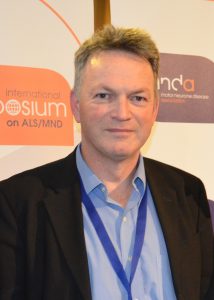
“I used to teach students that we have 100,000 genes, when we now know we have 20,000. (A worm has 19,000 genes!). Our complexity lies in how our 20,000 genes are processed to make proteins, there is lots of scope to make many different variations”.
He went on to explain the family history diagrams that doctors use in the clinic when exploring the possibility that MND might be inherited. Both the increasing knowledge of human disease and the longer lives that people live make a difference when looking to see if MND or frontotemporal dementia might run in the family.
Watch the recording of the ‘Genetics of MND’ talk
Genetic testing
Professor Chris Shaw, from the Maurice Wohl Clinical Neuroscience Institute at King’s College London talked to the meeting about the difficult topic of genetic testing in MND.
Expanding on the theme of exploring a family’s medical history from Prof Talbot’s talk, Prof Shaw told us some of the specific questions that he asks about the health of relatives, including questions about the pace of illness and their mobility when talking about family history. He also discussed the complicated area of how and when someone who is a gene carrier might go on to develop the disease. The chances of this happening is called ‘gene penetrance’- and it is poorly understood.
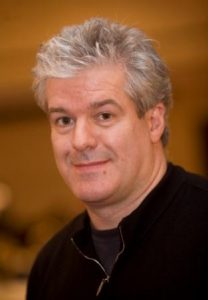
In the second half of his talk Prof Shaw explained in detail about what happens when someone decides to undergo genetic testing. He discussed the implications of having a test on both the person being tested and their wider family.
“Of those that make enquiries about the possibility of having a genetic test, only approximately one in ten of them actually decide to go ahead” he commented.
He finished by talking about the fact that there are beginning to be options for families affected by inherited MND for preventing or slowing down disease. It is possible to be able to prevent the damaged gene from being passed on to children, using a special type of In Vitro Fertilisation (IVF). He also discussed ways of treating inherited MND that may be possible in the future –an area of research which was covered in more depth in Prof Talbot’s “Emerging and future treatments” talk at the end of the day.
Watch the recording of the ‘Genetic testing’ talk
Research in asymptomatic family members
In this presentation Professor Turner talked about the value of people who were at risk of developing MND taking part in research. Very few studies of this kind have been conducted so far, however these studies are important.
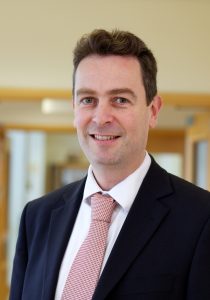
“We know that the body has a way of compensating for damaged motor neurones. The consequence of this is that when symptoms of MND appear, significant damage to motor neurones has already taken place.”
Understanding the early effects of MND damage can give us clues about the most effective ways to target drugs when the symptoms do appear – for all cases of MND. This type of research may also help design treatment specifically for people with inherited MND.
Prof Turner gave some examples of research currently underway around the world including brain imaging and biomarker studies in MND-gene carriers. He has also begun to conduct research on people who are at risk of developing MND in Oxford. There is a way for people to take part without finding out whether they have the damaged gene.
Watch the recording of the talk about ‘Research in asymptomatic family members’
Emerging and future treatments for inherited MND
In the final talk of the day Prof Talbot talked about ways to stop the effects of the mutated in gene in people with inherited MND. To demonstrate that it is possible to treat a disease caused by gene damage he talked about the advances in treating a condition called Spinal Muscular Atrophy.
In the second part of his talk he went on to discuss approaches that drug companies and MND researchers are looking into to treat inherited MND. These include ‘antisense’ drug therapies, which block a gene from being read, and gene therapies which can edit or deliver new copies of a gene. He described how the feasibility of some of these approaches is being tested in the lab.
Watch the recording of the ‘Emerging treatments’ talk
More information on inherited MND is available on the Association’s website. You can find out more about MND research underway at the University of Oxford on this webpage.


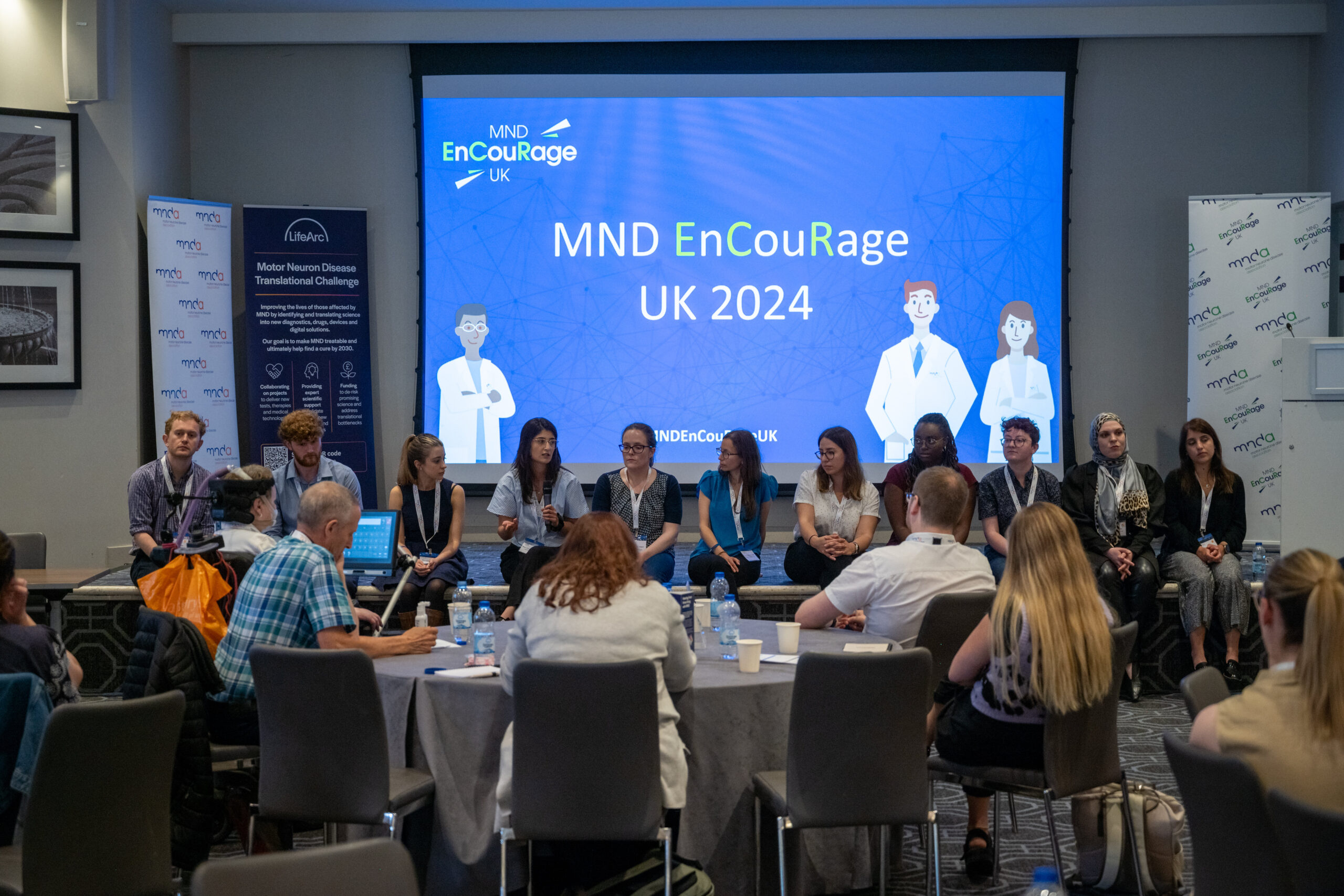

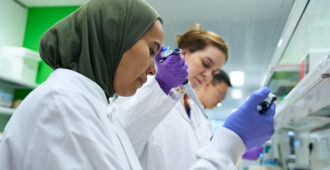
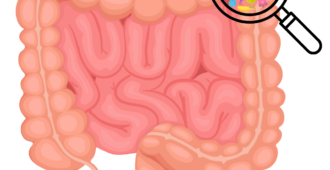
Great series of lectures. Lots of information.
Many thanks for this. I was disappointed that I couldn’t go to the FATHoM day, so this was the next best thing.
H
Having been confirmed as having the C9orf72 FTD/MND variant, I am happy to explain my experiences to anyone who is interested in finding out more.
I am having initial symptoms of the disease..my mother and my aunt passed brcause of the disease.
Can they take me for.trial…
Dear Anjim,
You can take part in clinical trials if you had already been diagnosed – one of the trials currently recruiting participants in the UK is MIROCALS (www.mndassociation.org/mirocals-clinical-trial).
If you have a family history of MND and now feel that you are experiencing symptoms of the disease, it would be best to get referred to a neurologist who should be able to tell you whether these are symptoms are related to MND.
Best Wishes,
Martina